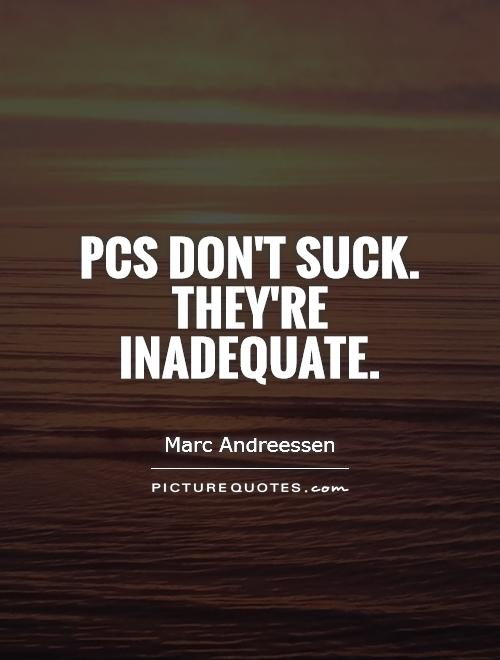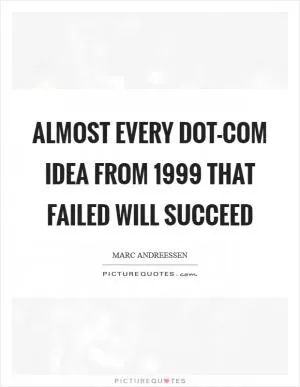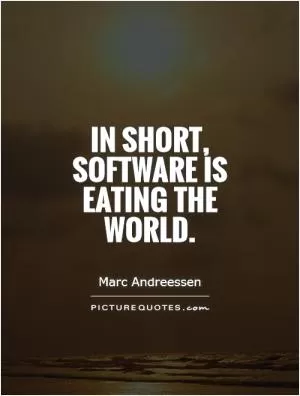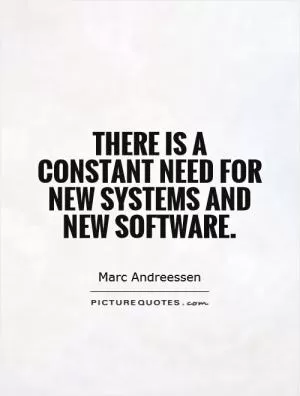PCs don't suck. They're inadequate

PCs don't suck. They're inadequate
Marc Andreessen, the co-founder of Netscape and prominent venture capitalist, famously stated that "PCs don't suck. They're inadequate." This statement, made in the early days of the internet boom, reflects Andreessen's belief that personal computers were not inherently flawed, but rather were limited in their capabilities at the time.In the context of Andreessen's career, this statement can be seen as a reflection of his forward-thinking approach to technology. As a key figure in the development of the early internet, Andreessen was acutely aware of the potential of personal computers to revolutionize communication and commerce. However, he also recognized that the hardware and software available at the time were not yet capable of fully realizing this potential.
Andreessen's belief that PCs were inadequate rather than inherently flawed speaks to his optimism about the future of technology. He understood that advancements in hardware and software would continue to improve the capabilities of personal computers, making them more powerful and versatile tools for individuals and businesses alike.
Indeed, in the years since Andreessen made this statement, we have seen significant advancements in the capabilities of personal computers. The rise of cloud computing, artificial intelligence, and high-speed internet connectivity has transformed the way we use PCs, enabling us to do things that were once unimaginable.
Today, personal computers are more powerful and versatile than ever before, enabling us to work, communicate, and create in ways that were once only possible on specialized machines. While PCs may still have their limitations, they are far from inadequate. In fact, they are essential tools for modern life, powering everything from online shopping to remote work to video editing.












 Friendship Quotes
Friendship Quotes Love Quotes
Love Quotes Life Quotes
Life Quotes Funny Quotes
Funny Quotes Motivational Quotes
Motivational Quotes Inspirational Quotes
Inspirational Quotes